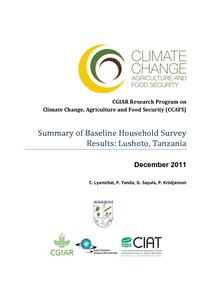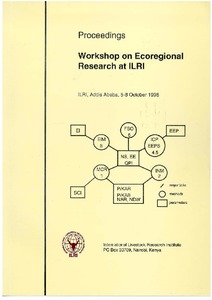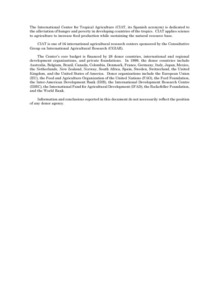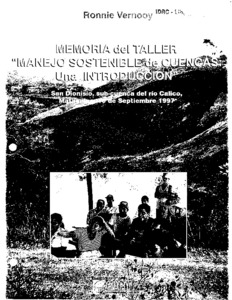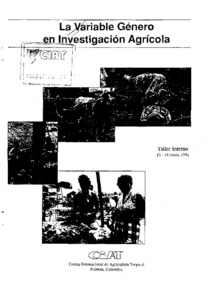Summary of household baseline survey results: Lushoto, Tanzania
This report summarizes the results of a baseline household-?level survey, led by the CGIAR Research Program on Climate Change, Agriculture and Food Security (CCAFS), carried out in 7 villages and 140 households in Lushoto, Tanzania in January 2011. The objective of this baseline effort was to describe the characteristics of the farming systems found across a wide range of research sites in 12 countries, including the Lushoto site, and to better understand what kinds of farming practice changes households have been making and why.
Storm drains and level ditches
On sloping land, storm ditches can protect land from erosion, while level ditches increase infiltration of rainwater runoff.
System prototyping and simulation modelling in mixed farming systems
A project proposal whose aim is to promote more appropriate resource management on smallholder crop-livestock farms in East Africa is described. Prototypes of mixed farming systems will be developed to characterise farming systems according to their management objectives. These prototypes will then be used to map improvements of the farming systems by combining prototyping and simulation modelling. Scenarios will be explored to assess natural resource management interventions that promote sustainability of these prototype-farming systmes.
Taller "Manejo Sostenible de Cuencas: Una Introducción" (1997, Matagalpa, Nicaragua). Memoria
Taller Instrumentos Metodológicos para la Toma de Decisiones sobre Manejo de los Recursos Naturales en Laderas (1998, Yorito, Yoro, Honduras). Memoria
Sustainable management of private and communal lands in northern Ethiopia
In this chapter, results of recent research conducted in the northern Ethiopian region of Tigray, which has experienced severe land degradation are synthesized. This paper highlights the technological and institutional factors determining the adoption of natural resource conservation at both the household and the community levels.
Taller Interno La Variable Género en Investigación Agrícola (1991, Palmira, Colombia). La variable género en investigación agrícola
Sustaining irrigated agriculture for food security: a perspective from Pakistan.
Humanity is facing an enormous challenge in managing water to secure adequate food production. By the middle of this century, the world?s population is projected to reach 9.1 billion, 34 percent higher than today. Nearly all of this increase will occur in developing countries. In order to respond to the expected demand of this larger, more urban and, on average, richer population, food production must increase by about 70% as estimated by the FAO.


